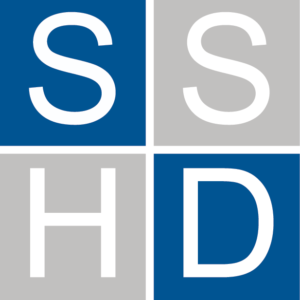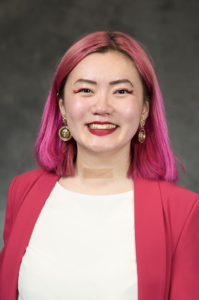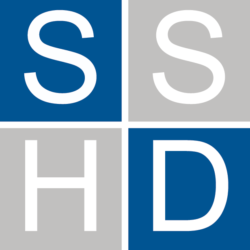 Taking a closer look at research and experiences of SSHD members
Taking a closer look at research and experiences of SSHD members
~Researcher’s Window~
This month, we are getting better acquainted with the research of Qingyang Liu, a Ph.D. Candidate at Syracuse University. She is an emerging scholar and a member of the publicity committee at SSHD.
- What drew you to do work in your field?
My interest in human development began during my sophomore year as an undergraduate in China when I took a course on Developmental Psychology. I was captivated by the ideology of lifespan development, which examines growth and change from “womb to tomb.” This academic foundation inspired me to explore how humans develop and thrive over time. My interest deepened during an internship at a children’s hospital, where I closely observed children with both typical and atypical developmental trajectories. Witnessing the profound variations in their growth, I became especially interested in how young children learn to self-regulate their behaviors, emotions, and attention—skills that are critical for lifelong success. This fascination with self-regulation inspired me to investigate how these capacities develop, evolve, and mature across childhood. For me, childhood (ages 3–12) represents a high-potential developmental period filled with opportunities for growth, resilience, and flourishing. My multicultural and interdisciplinary background informs my research perspective, allowing me to view human development as a dynamic, evolving process shaped by contextual and relational factors. This framework has driven my commitment to advancing research that promotes equity and well-being across diverse populations.
- Did you have any mentor or a researcher who had a substantial influence on your path or work?
Throughout my doctoral training journey, I have been extremely fortunate to have received the guidance of many incredible scholars and mentors who have profoundly shaped my scholarship, professional development, and personal growth. Dr. Rachel Razza has been instrumental in helping me thrive during my doctoral training, providing unwavering mentorship that has supported my development into an independent scholar. Her guidance has extended beyond academics, fostering my independent growth to navigate the complexities of research and academia. Dr. Gabriel Joey Merrin inspired me to embrace cutting-edge methodologies through countless collaborative working sessions that exemplified his passion for advancing the field. Dr. Sara Vasilenko has been a model for building and sustaining a research lab, showing me how to nurture a motivated and cohesive team while maintaining an inclusive and inspiring research environment. Dr. Xiafei Wang has deeply influenced my thinking about human development theories, encouraging me to engage with them critically and creatively during the writing process. Beyond these individuals, peer mentors like Dr. Ying Zhang have treated me as both a colleague and a friend, providing constructive feedback, encouragement, and support. Across all these relationships, my mentors have shown extraordinary generosity with their time and insights, consistently fostering my research, career development, and personal growth. Their mentorship has inspired me to model the same warmth, generosity, and support in guiding future students and colleagues, ensuring that I contribute to a culture of collaboration and inclusivity in human development research.
- You have a range of important work, select 1-2 findings that you feel are key contributions to human development and describe those in brief.
Liu, Q., Merrin, G. J., Vasilenko, S. A., & Razza, R. A. (2024). Continuity and change in early material hardship domains on the development of children’s behavioral self-regulation in middle childhood. Children and Youth Services Review, 167.
Material hardship and behavioral self-regulation: One of my key contributions examines the continuity and change in material hardship domains (e.g., food, housing, bill-paying, utility, and medical) from postpartum to preschool years and their long-term impact on children’s behavioral self-regulation in middle childhood (Liu et al., 2024b). Using a nationally representative dataset, I utilized a person-centered approach to identify four distinct trajectories of material hardship with varying chronicity and changing patterns, demonstrating how persistent financial adversity significantly undermines children’s behavioral self-regulation development. This work emphasizes the urgent need for interventions targeting economically disadvantaged families, highlighting cultural and inclusion significance by addressing systemic inequities that disproportionately affect minoritized and underserved populations.
Liu, Q., Razza, R. A., Zhang, Y., & Merrin, G. J. (2024). Differential growth trajectories of behavioral self-regulation from early childhood to adolescence: Implication for youth domain-general and school-specific outcomes. Applied Developmental Science, 1-21.
Behavioral self-regulation promotes adolescents’ flourishing: Another key contribution explores longitudinal developmental trajectories of behavioral self-regulation from early childhood to adolescence and their unique associations with adolescent outcomes, such as positive functioning, delinquent behavior, school connectedness, and peer victimization (Liu et al., 2024a). This study employed a person-centered approach and identified four distinct behavioral self-regulation trajectories among underrepresented, minoritized children, including Early Developer (52.3%), Moderate Stable (37.4%), Lagged Developer (5.2%), and Regressor (5%). The Early Developer behavioral self-regulation trajectory showed the most protective outcomes, with high positive functioning and school connectedness and low delinquent behavior and victimization. Conversely, the Regressor behavioral self-regulation trajectory was associated with the riskiest outcomes. The findings underscore the importance of culturally sensitive, timely, and tailored interventions during the transition from early to middle childhood to enhance self-regulation, particularly for at-risk youth.
- Your one wish for the study of human development
My wish is to advance the human development field beyond traditional, Western-centric frameworks, ensuring that research reflects the experiences and needs of diverse populations. By integrating voices and methodologies from underrepresented communities, cross-cultural studies, and multi-disciplines like public policy, sociology, public health, and education, researchers could generate more holistic and equitable insights to design interventions that address systemic disparities, ultimately fostering environments where all individuals can thrive.
- A mentoring statement or quote you find most meaningful or life-changing
“Success is not final, failure is not fatal: It is the courage to continue that counts.” – Winston Churchill
About the researcher
 Qingyang Liu is a fifth-year PhD Candidate in the Department of Human Development and Family Science at Syracuse University and an incoming Postdoctoral Research Scholar in the Department of Psychology at Arizona State University in July 2025. Her research program focuses on promoting the developmental trajectory of self-regulation from early childhood through adolescence among racially/ethnically minoritized children living in poverty. Specifically, she investigates the influences of early poverty-related stressors (e.g., material hardship, household chaos), relational processes (e.g., parenting), and socio-environmental factors (e.g., neighborhood poverty/violence) that shape normal and atypical development of self-regulation in various ecological contexts. She received an M.S. in Educational Psychology and Methodology from the University at Albany, SUNY, a B.A. in Psychology from San Francisco State University, and a B.S. in Applied Psychology from Guangzhou Medical University.
Qingyang Liu is a fifth-year PhD Candidate in the Department of Human Development and Family Science at Syracuse University and an incoming Postdoctoral Research Scholar in the Department of Psychology at Arizona State University in July 2025. Her research program focuses on promoting the developmental trajectory of self-regulation from early childhood through adolescence among racially/ethnically minoritized children living in poverty. Specifically, she investigates the influences of early poverty-related stressors (e.g., material hardship, household chaos), relational processes (e.g., parenting), and socio-environmental factors (e.g., neighborhood poverty/violence) that shape normal and atypical development of self-regulation in various ecological contexts. She received an M.S. in Educational Psychology and Methodology from the University at Albany, SUNY, a B.A. in Psychology from San Francisco State University, and a B.S. in Applied Psychology from Guangzhou Medical University.
Edited and launched by Yoko Yamamoto, Deborah J. Johnson, and Qingyang Liu
SSHD Publicity & Diversity Science Initiative Committee
Visit our website for more information! https://sshdonline.org/
Like us on Facebook!
Follow us on Instagram!
Follow us on LinkedIn!

